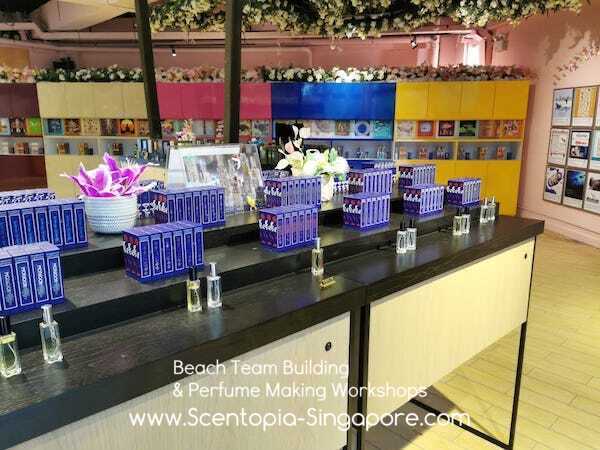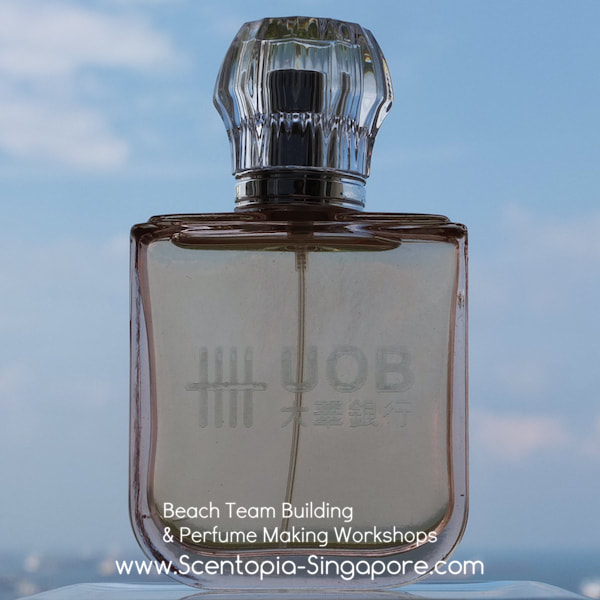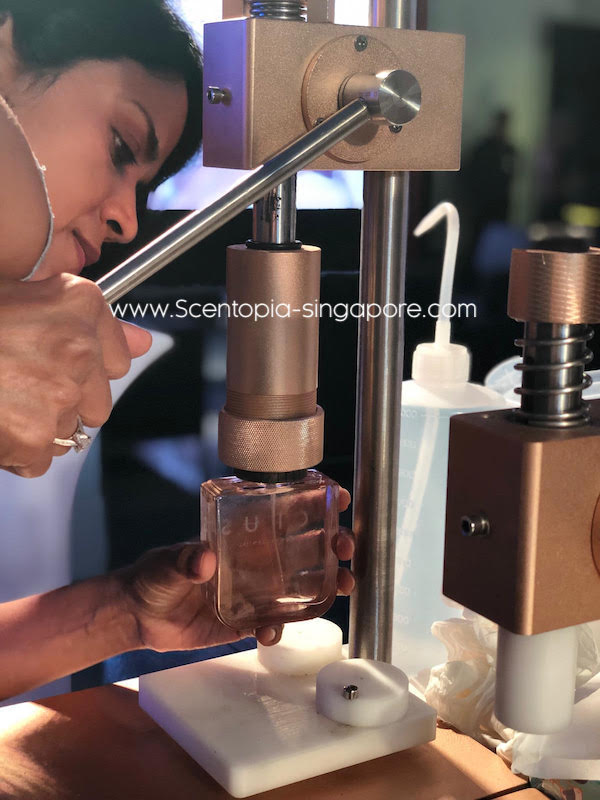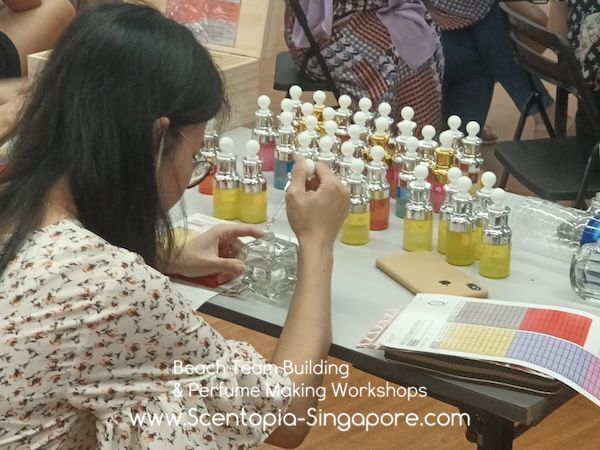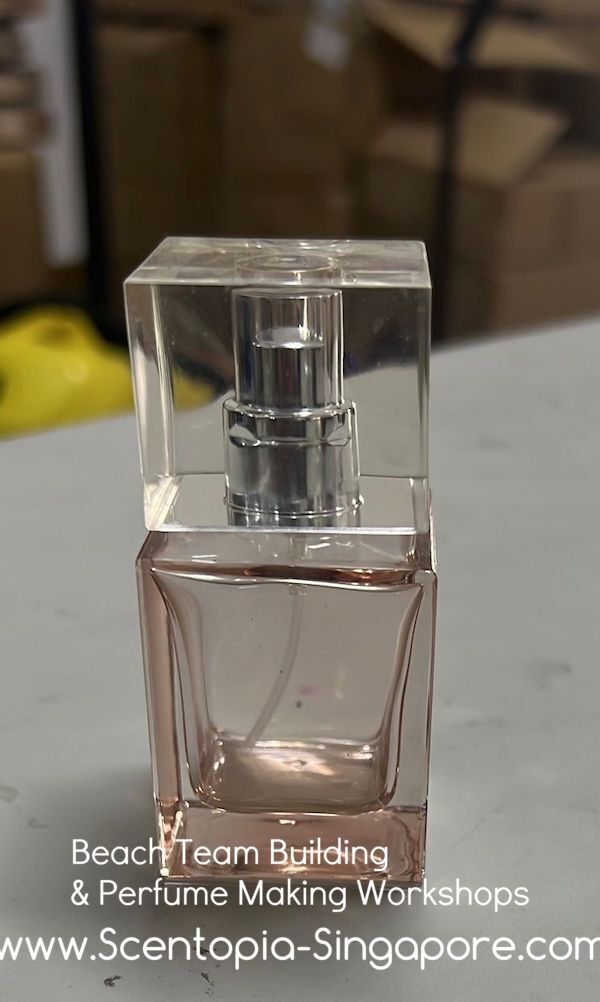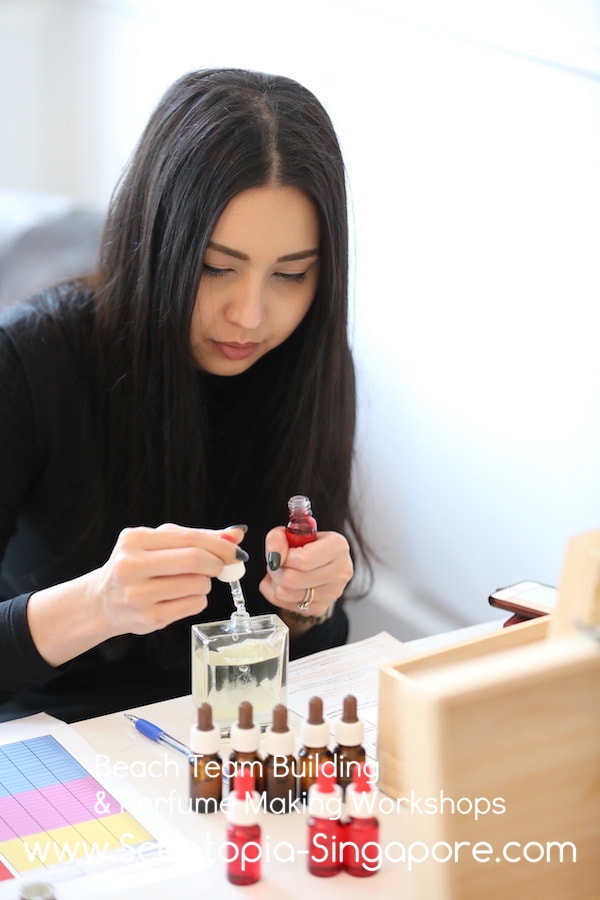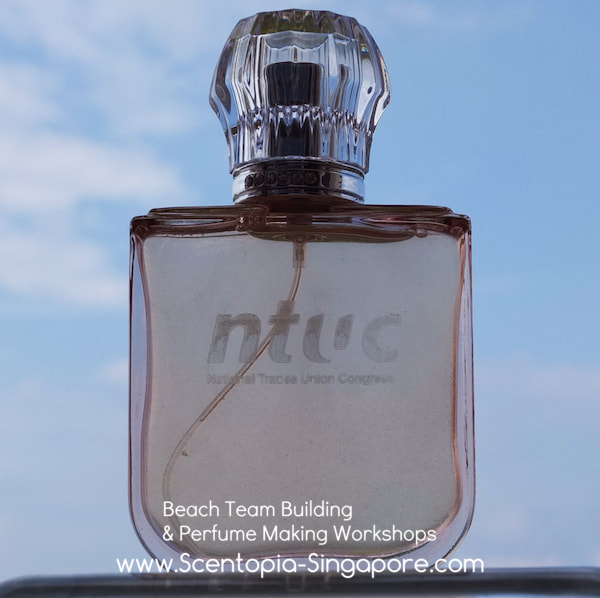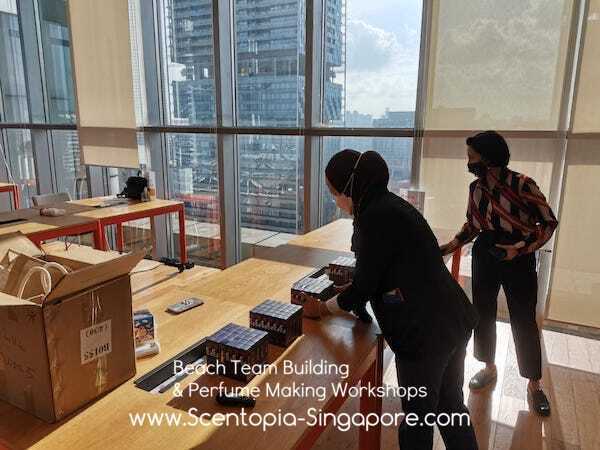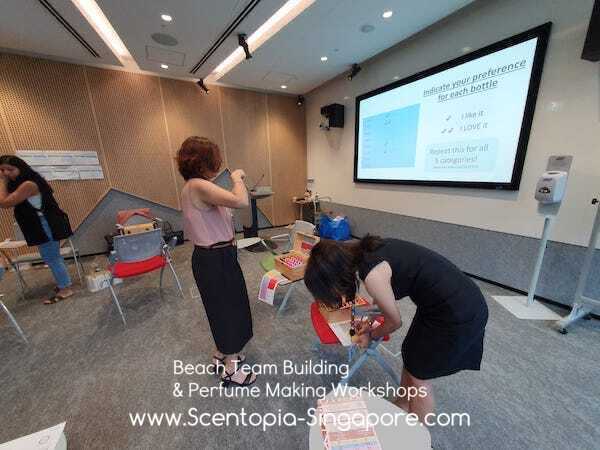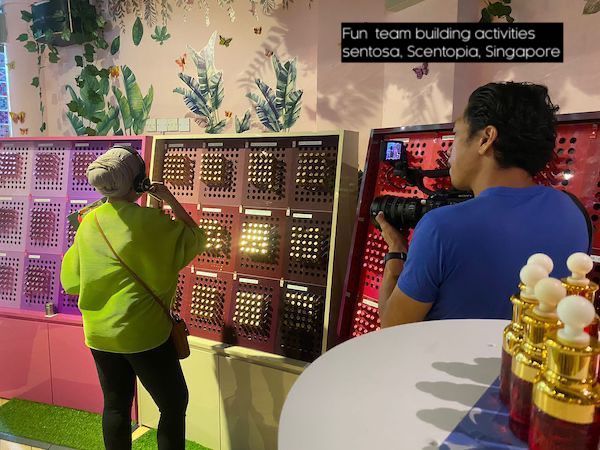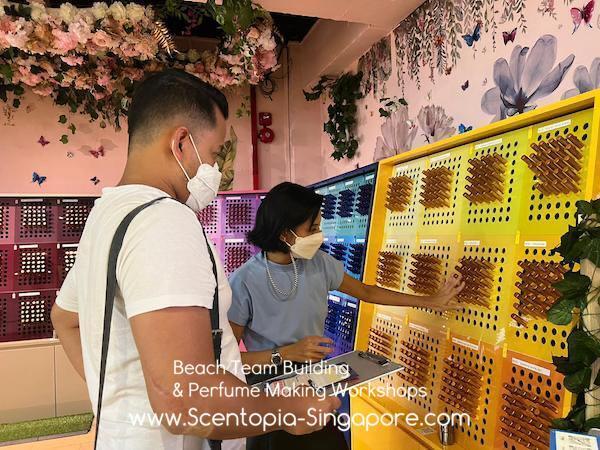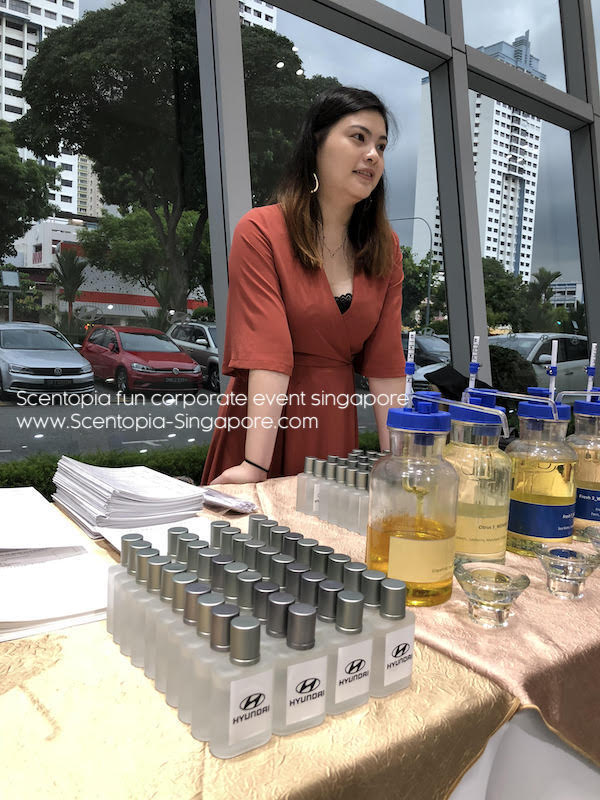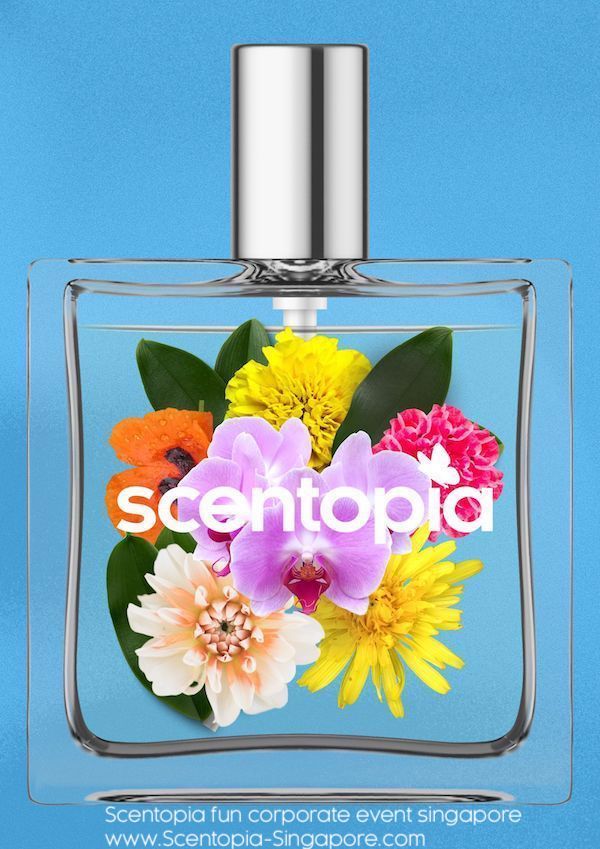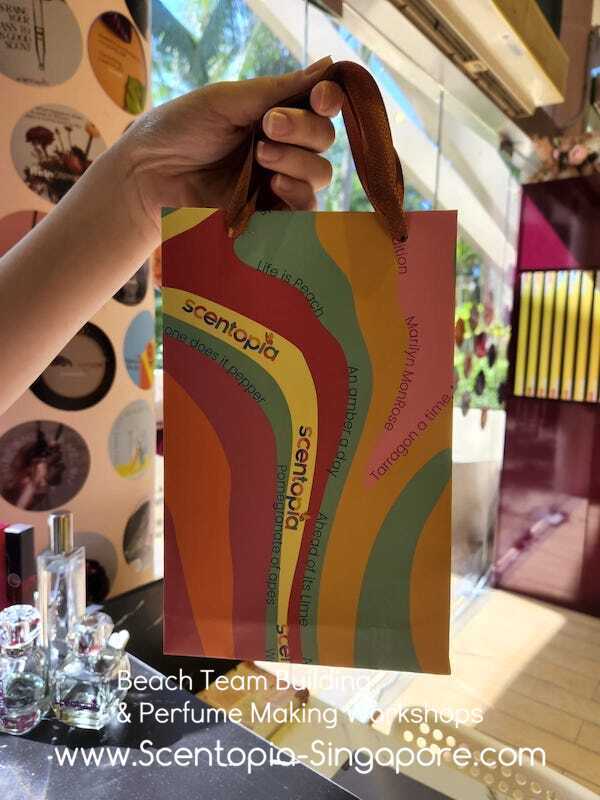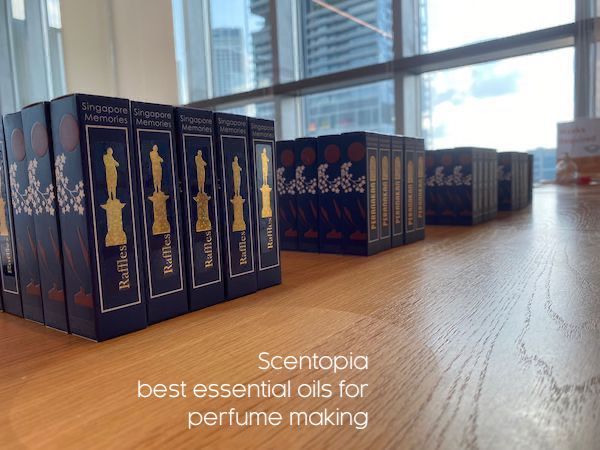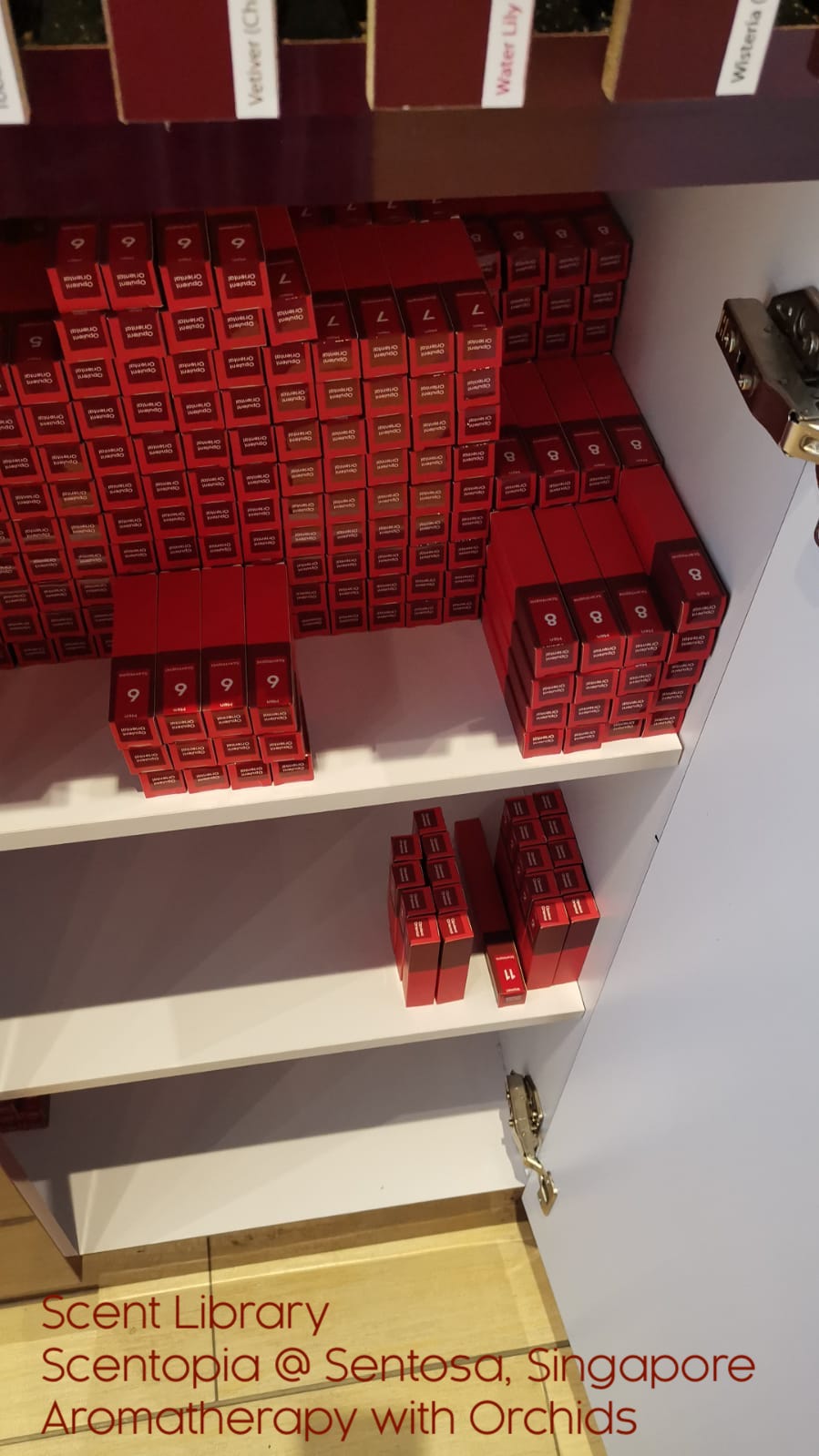Can Perfume Go Bad? Learn How to Preserve Your Fragrance
Understanding Perfume Shelf Life
I’m sure everyone owns at least a bottle at home. You might have a signature collection or maybe someone gifted it to you on Christmas. Have you ever wondered if our perfume has an ‘expiry date’? The answer is yes, perfumes do go off. But just how long can we store our perfume before it goes bad? The shelf life of a perfume depends on different factors, such as the storage method and the scent’s chemical composition.
Most perfumes don’t have a label for expiry date, as they can last between 1-10 years. But the best period would be between 3-5 years. According to experts, perfumes with heavier base notes will last longer as compared to perfumes made up of mainly top or middle notes. Some examples of perfume base notes include patchouli, cedarwood and frankincense; while top notes include lemon, orange and bergamot. And yet, some perfume are like wine with shelf life of hundreds of years!
Perfume storage is a huge factor which can affect the shelf life of a perfume. Correct storage allows the lovely scent to last much longer. Storing your perfume away from direct sunlight or freezing temperatures can help to prolong the shelf life of fragrance.
Don’t make the mistake of storing your perfume in the bathroom! The humidity in the bathroom will destroy the molecular integrity of your perfume. If you have a perfume just sitting on the shelf for a long time, don’t let it go to waste! Perfume can be a very accessory used to bring out your unique personality!
If you want to experience creating and having your very own personalized perfume, you may want to attend a perfume workshop!
Most perfumes don’t have a label for expiry date, as they can last between 1-10 years. But the best period would be between 3-5 years. According to experts, perfumes with heavier base notes will last longer as compared to perfumes made up of mainly top or middle notes. Some examples of perfume base notes include patchouli, cedarwood and frankincense; while top notes include lemon, orange and bergamot. And yet, some perfume are like wine with shelf life of hundreds of years!
Perfume storage is a huge factor which can affect the shelf life of a perfume. Correct storage allows the lovely scent to last much longer. Storing your perfume away from direct sunlight or freezing temperatures can help to prolong the shelf life of fragrance.
Don’t make the mistake of storing your perfume in the bathroom! The humidity in the bathroom will destroy the molecular integrity of your perfume. If you have a perfume just sitting on the shelf for a long time, don’t let it go to waste! Perfume can be a very accessory used to bring out your unique personality!
If you want to experience creating and having your very own personalized perfume, you may want to attend a perfume workshop!
How to Extend Your Fragrance's Lifespan
Can Perfume Go Bad? Tips for Extending Your Fragrance's Shelf LifePerfume is more than just a fragrance; it's an expression of your personality and style. Whether you have a signature scent or a collection of your favorite fragrances, you want them to last as long as possible. But can perfume go bad? The answer is yes, it can. In this comprehensive guide, we'll explore the factors that can cause your perfume to go bad and share valuable tips on how to prolong its lifespan. Let's dive in and discover the secrets to preserving the essence of your fragrance.
Tips for Extending Your Fragrance's Shelf Life
Preserving the longevity of your cherished fragrances requires careful attention to detail. Here are some essential tips for extending your fragrance's shelf life:
Preserving the longevity of your cherished fragrances requires careful attention to detail. Here are some essential tips for extending your fragrance's shelf life:
- Proper Storage: Keep your perfume bottles in a cool, dark place away from direct sunlight and extreme temperature fluctuations. A cool, stable environment helps prevent the degradation of fragrance molecules.
- Seal Tightly: Ensure your perfume bottles are tightly sealed when not in use. Exposure to air can oxidize the fragrance and alter its scent.
- Avoid Humidity: High humidity levels can damage the integrity of your perfume. Store your bottles in a dry location to maintain their quality.
- Avoid Rapid Temperature Changes: Drastic temperature shifts can affect the chemical composition of your perfume. Keep it away from places with fluctuating temperatures, like bathrooms.
- Use It Regularly: Perfume is meant to be enjoyed. Using it regularly helps prevent stagnation and keeps the fragrance fresh.
- Rotate Your Collection: If you have a vast collection, rotate your perfumes to prevent any single bottle from aging too quickly.
- Check for Changes: Periodically inspect your fragrances for changes in color, scent, or texture. If you notice any alterations, it may be time to replace the perfume.
Can Perfume Go Bad? Learn How to Preserve Your Fragrance
Your perfume is more than just a pleasant scent; it's an olfactory signature that complements your personality and style. It has the power to evoke memories and create lasting impressions. However, like all good things, even perfume has a limited lifespan. The question we're here to address is, "Can perfume go bad?" The answer is a resounding yes, but fear not, for in this comprehensive guide, we will equip you with the knowledge and tips needed to extend your fragrance's shelf life and keep it smelling divine.
Understanding Perfume Shelf Life
Every perfume, regardless of its price or brand, has a shelf life. Just like food products have expiration dates, fragrances have their own clock that starts ticking the moment they're opened. Understanding this shelf life is vital to preserving your investment and ensuring your fragrances continue to captivate your senses.
Factors Affecting Perfume Quality
Beyond the mere passage of time, various factors can influence the quality of your perfume. Exposure to light, temperature fluctuations, and even the type of bottle can impact the fragrance's longevity and aroma. We'll delve into these factors and offer strategies to mitigate their effects.
Tips for Perfume Storage
Proper storage is a cornerstone of fragrance preservation. You'll discover the importance of shielding your perfumes from direct sunlight, extreme temperatures, and humidity. We'll provide practical guidance on creating the optimal storage conditions for your precious bottles.
How to Extend Your Fragrance's Lifespan
Do you have a favorite perfume that you'd like to cherish for years? We've assembled a treasure trove of tips and tricks to help you extend the lifespan of your fragrances. From application techniques to scent layering, these strategies will keep your signature scent alive.
Common Myths About Perfume Expiration
Throughout our journey, we'll encounter myths and misconceptions about perfume expiration. We'll debunk these untruths with science-backed explanations, ensuring you're armed with accurate information.
So, whether you're a fragrance enthusiast with a cabinet full of perfumes or simply someone who enjoys a spritz of something lovely before heading out, this guide will empower you to take control of your perfume's destiny. Stay with us as we uncover the secrets to preserving the essence of your fragrance.
Your perfume is more than just a pleasant scent; it's an olfactory signature that complements your personality and style. It has the power to evoke memories and create lasting impressions. However, like all good things, even perfume has a limited lifespan. The question we're here to address is, "Can perfume go bad?" The answer is a resounding yes, but fear not, for in this comprehensive guide, we will equip you with the knowledge and tips needed to extend your fragrance's shelf life and keep it smelling divine.
Understanding Perfume Shelf Life
Every perfume, regardless of its price or brand, has a shelf life. Just like food products have expiration dates, fragrances have their own clock that starts ticking the moment they're opened. Understanding this shelf life is vital to preserving your investment and ensuring your fragrances continue to captivate your senses.
Factors Affecting Perfume Quality
Beyond the mere passage of time, various factors can influence the quality of your perfume. Exposure to light, temperature fluctuations, and even the type of bottle can impact the fragrance's longevity and aroma. We'll delve into these factors and offer strategies to mitigate their effects.
Tips for Perfume Storage
Proper storage is a cornerstone of fragrance preservation. You'll discover the importance of shielding your perfumes from direct sunlight, extreme temperatures, and humidity. We'll provide practical guidance on creating the optimal storage conditions for your precious bottles.
How to Extend Your Fragrance's Lifespan
Do you have a favorite perfume that you'd like to cherish for years? We've assembled a treasure trove of tips and tricks to help you extend the lifespan of your fragrances. From application techniques to scent layering, these strategies will keep your signature scent alive.
Common Myths About Perfume Expiration
Throughout our journey, we'll encounter myths and misconceptions about perfume expiration. We'll debunk these untruths with science-backed explanations, ensuring you're armed with accurate information.
So, whether you're a fragrance enthusiast with a cabinet full of perfumes or simply someone who enjoys a spritz of something lovely before heading out, this guide will empower you to take control of your perfume's destiny. Stay with us as we uncover the secrets to preserving the essence of your fragrance.
Understanding Perfume Shelf Life
Perfume, that exquisite concoction of aromatic oils, alcohol, and water, is a sensory delight that enhances our personal allure. It captures moments, elicits emotions, and becomes an integral part of our identity. However, like all good things, even the most exquisite fragrances have a finite lifespan.
The Science Behind Perfume Aging
The primary factor determining the shelf life of a perfume lies in its chemical composition. Perfumes consist of volatile fragrance oils suspended in alcohol and water. Over time, these oils can undergo chemical changes due to exposure to various environmental factors. Here's a deeper dive into what affects the shelf life of perfumes:
1. Composition: The specific blend of essential oils, aroma compounds, and fixatives in a perfume plays a crucial role. Some ingredients are more stable than others, and their volatility impacts how long the fragrance lasts.
2. Concentration: The concentration of fragrance oils in a perfume varies. Eau de parfum, for instance, has a higher concentration and generally lasts longer than eau de toilette.
3. Alcohol Content: Alcohol acts as a carrier for the fragrance oils. High alcohol content can help preserve the fragrance, but it can also cause evaporation and alteration of the scent over time.
4. Packaging: The type of bottle and its seal play a significant role in preserving perfume. Dark, airtight containers shield the fragrance from light and air, which can degrade it.
5. Storage Conditions: Where and how you store your perfume can make or break its shelf life. Factors like temperature, humidity, and exposure to sunlight all contribute to the aging process.
Perfume, that exquisite concoction of aromatic oils, alcohol, and water, is a sensory delight that enhances our personal allure. It captures moments, elicits emotions, and becomes an integral part of our identity. However, like all good things, even the most exquisite fragrances have a finite lifespan.
The Science Behind Perfume Aging
The primary factor determining the shelf life of a perfume lies in its chemical composition. Perfumes consist of volatile fragrance oils suspended in alcohol and water. Over time, these oils can undergo chemical changes due to exposure to various environmental factors. Here's a deeper dive into what affects the shelf life of perfumes:
1. Composition: The specific blend of essential oils, aroma compounds, and fixatives in a perfume plays a crucial role. Some ingredients are more stable than others, and their volatility impacts how long the fragrance lasts.
2. Concentration: The concentration of fragrance oils in a perfume varies. Eau de parfum, for instance, has a higher concentration and generally lasts longer than eau de toilette.
3. Alcohol Content: Alcohol acts as a carrier for the fragrance oils. High alcohol content can help preserve the fragrance, but it can also cause evaporation and alteration of the scent over time.
4. Packaging: The type of bottle and its seal play a significant role in preserving perfume. Dark, airtight containers shield the fragrance from light and air, which can degrade it.
5. Storage Conditions: Where and how you store your perfume can make or break its shelf life. Factors like temperature, humidity, and exposure to sunlight all contribute to the aging process.
Why Understanding Perfume Shelf Life Matters
Knowing the shelf life of your perfume is essential for several reasons:
1. Scent Preservation: Perfumes evolve over time, and understanding their shelf life helps you enjoy the fragrance at its best.
2. Preventing Spoilage: Beyond scent changes, expired perfumes can develop an unpleasant, rancid odor. Being aware of shelf life helps you avoid using spoiled perfume.
3. Investment Protection: Perfume can be a significant investment. Being informed about shelf life ensures you get the most out of your purchase.
Perfume shelf life is not a static concept; it's a dynamic interplay of ingredients, concentrations, packaging, and environmental factors. By understanding the science behind perfume aging and the variables at play, you can take steps to prolong the life of your favorite fragrances and ensure they continue to enhance your personal aura.
Knowing the shelf life of your perfume is essential for several reasons:
1. Scent Preservation: Perfumes evolve over time, and understanding their shelf life helps you enjoy the fragrance at its best.
2. Preventing Spoilage: Beyond scent changes, expired perfumes can develop an unpleasant, rancid odor. Being aware of shelf life helps you avoid using spoiled perfume.
3. Investment Protection: Perfume can be a significant investment. Being informed about shelf life ensures you get the most out of your purchase.
Perfume shelf life is not a static concept; it's a dynamic interplay of ingredients, concentrations, packaging, and environmental factors. By understanding the science behind perfume aging and the variables at play, you can take steps to prolong the life of your favorite fragrances and ensure they continue to enhance your personal aura.
Factors Affecting Perfume Quality
Perfume quality is a multidimensional concept that encompasses more than just the initial scent experience. It extends to how well the fragrance holds up over time, ensuring that the perfume remains true to its intended character and potency. Let's explore the various factors that can influence perfume quality and strategies to mitigate their impact.
1. Ingredient Quality:
To mitigate the impact of these factors on your perfume's quality:
Perfume quality is a multidimensional concept that encompasses more than just the initial scent experience. It extends to how well the fragrance holds up over time, ensuring that the perfume remains true to its intended character and potency. Let's explore the various factors that can influence perfume quality and strategies to mitigate their impact.
1. Ingredient Quality:
- Natural vs. Synthetic Oils: Perfumes contain a blend of natural and synthetic fragrance oils. The quality of these oils can vary significantly, affecting the overall scent profile. High-quality oils often result in a longer-lasting and more authentic fragrance.
- Fragrance Concentration: Perfumes come in different concentrations, such as eau de parfum, eau de toilette, and eau de cologne. Higher concentrations typically result in longer-lasting fragrances with stronger sillage (the trail of scent left behind).
- Alcohol Type and Percentage: Alcohol is a carrier for fragrance oils. The type and percentage of alcohol can impact how the perfume evaporates and interacts with your skin. Too much alcohol can cause rapid evaporation, altering the fragrance's character.
- Bottle Design: The design of the perfume bottle and its sealing mechanism matter. Dark, opaque bottles protect the fragrance from light, which can cause chemical changes. Airtight seals prevent exposure to air, which can oxidize the perfume.
- Temperature and Humidity: Extremes in temperature and humidity can accelerate the degradation of fragrance oils. High heat can cause volatilization, while high humidity can lead to spoilage.
- Sunlight Exposure: Exposure to direct sunlight can break down fragrance compounds, leading to altered scents and potential discoloration.
- Proper Storage: Storing perfume in a cool, dark place with stable temperature and humidity levels is crucial for preserving its quality. Avoid keeping it in bathrooms where temperature and humidity fluctuate.
- Frequency of Use: Regular use of your perfume can help maintain its freshness. However, excessive spraying can lead to faster depletion.
- Application Technique: How you apply your perfume can also affect its quality. Spraying it on your skin rather than on clothing allows it to interact with your body chemistry for a more consistent scent.
To mitigate the impact of these factors on your perfume's quality:
- Invest in high-quality perfumes with a good balance of natural and synthetic ingredients.
- Opt for perfumes with appropriate concentrations for your desired longevity.
- Choose fragrances with suitable alcohol content.
- Store your perfumes in a cool, dark, and stable environment.
- Rotate your perfume collection to prevent any single bottle from aging too quickly.
- Use your perfumes regularly but in moderation, and apply them strategically.
Tips for Perfume Storage
Proper perfume storage is crucial for preserving the quality and longevity of your fragrances. Whether you have a single signature scent or a collection of captivating aromas, following these tips will help ensure your perfumes maintain their aromatic beauty.
The Do's:
Proper perfume storage is crucial for preserving the quality and longevity of your fragrances. Whether you have a single signature scent or a collection of captivating aromas, following these tips will help ensure your perfumes maintain their aromatic beauty.
The Do's:
- Store in a Cool, Dark Place: Heat and light can accelerate the breakdown of fragrance molecules. Choose a cool, dark location away from direct sunlight or extreme temperature fluctuations. A dresser drawer or closet shelf is often an ideal spot.
- Keep Bottles Upright: Perfume bottles are designed to be stored upright. This prevents the perfume from coming into prolonged contact with the bottle's cap or stopper, which can lead to seal deterioration.
- Use the Original Bottles: Keep your perfumes in their original bottles. Transferring them to other containers may expose them to air and affect their quality.
- Secure Bottle Closures: Ensure the caps or stoppers are tightly sealed after each use to minimize exposure to air, which can cause evaporation and oxidation.
- Rotate Your Collection: If you have a sizable perfume collection, rotate the fragrances you use. This prevents any single bottle from aging too quickly due to frequent use.
- Avoid Bathroom Storage: Bathrooms are often humid and prone to temperature fluctuations due to showers and baths. Avoid storing your perfumes in the bathroom, as these conditions can degrade the fragrance.
- Don't Refrigerate: Contrary to popular belief, refrigeration is not recommended for perfumes. The temperature and humidity changes when removing them from the refrigerator can negatively impact the fragrance.
- Shield from Direct Sunlight: Exposure to sunlight can lead to chemical changes in your perfume, altering its scent and potentially causing discoloration. Keep your fragrances away from windows and light sources.
- Don't Shake the Bottle: Avoid shaking the perfume bottle vigorously. This can introduce air into the bottle, potentially leading to oxidation. Gently roll or swirl the bottle to mix the fragrance if needed.
- Don't Overstock: While it's tempting to build a vast perfume collection, try not to purchase more than you can reasonably use within a few years. Perfumes can deteriorate over time, even if unopened.
How to Extend Your Fragrance's Lifespan
Fragrances are more than just scents; they're a part of your identity and style. If you want to ensure your favorite perfumes last longer and maintain their delightful aroma, consider these practical tips and tricks to extend the lifespan of your fragrance collection:
1. Apply Strategically:
Fragrances are more than just scents; they're a part of your identity and style. If you want to ensure your favorite perfumes last longer and maintain their delightful aroma, consider these practical tips and tricks to extend the lifespan of your fragrance collection:
1. Apply Strategically:
- Pulse Points: Apply perfume to your pulse points, such as your wrists, neck, and behind your ears. These areas emit heat, which can intensify the fragrance.
- Hair: Spritzing a little perfume on your hair can prolong its scent as hair retains fragrance well. However, be cautious not to overdo it, as alcohol in the perfume can dry out your hair.
- Use Matching Products: Consider using matching body lotions or shower gels from the same fragrance line. Layering these products can enhance the longevity of the scent.
- Hydrated Skin: Perfume tends to last longer on well-moisturized skin. Apply an unscented lotion or oil to your skin before spraying on your fragrance.
- Perfume Lockets or Jewelry: Some accessories are designed to hold a small amount of perfume. These can subtly release the fragrance throughout the day.
- Midday Refresher: If your fragrance starts to fade during the day, carry a travel-size perfume atomizer for a quick touch-up.
- Eau de Parfum: Opt for perfumes with higher concentrations like eau de parfum, as they tend to last longer than eau de toilette or eau de cologne.
- Proper Storage: Continue to store your fragrances in a cool, dark place, away from heat and sunlight. These conditions help preserve the fragrance's integrity.
- Prevent Overuse: Rotate the perfumes you wear regularly. This prevents any single bottle from being used up quickly.
- Preserve the Contents: After each use, ensure the perfume bottle is tightly sealed. This prevents unnecessary exposure to air, which can lead to evaporation.
The Science Behind Perfume Aging
Perfume is surrounded by myths and misconceptions about its shelf life and longevity. It's time to dispel these myths and provide you with the real facts about when and why perfumes can go bad.
Myth 1: Perfume Lasts Forever
Fact: While some well-preserved vintage perfumes can maintain their quality for decades, the majority of perfumes have a limited shelf life. Perfume, like any other organic compound, can degrade over time, especially if exposed to adverse conditions.
Myth 2: Perfumes Expire on a Specific Date
Fact: Perfumes typically don't have an expiration date like food products. However, they do have a shelf life, which can vary depending on various factors, including the ingredients, concentration, and storage conditions. Pay attention to changes in scent, color, or texture to determine if a perfume has gone bad.
Myth 3: Refrigeration Preserves Perfume
Fact: Refrigeration is not recommended for most perfumes. The temperature and humidity fluctuations when taking the perfume in and out of the fridge can negatively affect the fragrance. It's best to store perfume in a cool, stable environment away from light and heat.
Myth 4: Perfume Should Be Applied Directly to Clothing
Fact: While it's safe to apply perfume to clothing, it's not always recommended. Some perfumes contain ingredients that can stain or damage fabrics. It's best to apply perfume to pulse points on your skin, allowing it to interact with your body's warmth and chemistry.
Myth 5: All Perfumes Age the Same Way
Fact: Perfume aging depends on various factors, including ingredients, concentration, packaging, and storage conditions. Some perfumes may age gracefully, while others may deteriorate more rapidly. It's essential to evaluate each perfume individually.
Myth 6: Top Notes Are a Reliable Indicator of Perfume Quality
Fact: The top notes of a perfume, the initial scents you detect upon application, can be misleading. The true character and quality of a fragrance may not become apparent until the middle (heart) and base notes are revealed over time. Therefore, it's crucial to give a perfume time to develop on your skin.
Myth 7: All Changes in Perfume Are Signs of Spoilage
Fact: Perfumes can evolve and change in scent over time without necessarily being spoiled. These changes can result from exposure to air, light, or even natural aging processes. If a perfume smells slightly different but still pleasant, it may not be spoiled.
Understanding the real facts about perfume expiration and the common myths surrounding it can help you make informed decisions about your fragrance collection. While perfumes do have a limited shelf life, proper storage and regular evaluation can ensure that you enjoy your favorite scents for as long as possible, while also recognizing when it's time to part ways with an aging fragrance.
Perfume is surrounded by myths and misconceptions about its shelf life and longevity. It's time to dispel these myths and provide you with the real facts about when and why perfumes can go bad.
Myth 1: Perfume Lasts Forever
Fact: While some well-preserved vintage perfumes can maintain their quality for decades, the majority of perfumes have a limited shelf life. Perfume, like any other organic compound, can degrade over time, especially if exposed to adverse conditions.
Myth 2: Perfumes Expire on a Specific Date
Fact: Perfumes typically don't have an expiration date like food products. However, they do have a shelf life, which can vary depending on various factors, including the ingredients, concentration, and storage conditions. Pay attention to changes in scent, color, or texture to determine if a perfume has gone bad.
Myth 3: Refrigeration Preserves Perfume
Fact: Refrigeration is not recommended for most perfumes. The temperature and humidity fluctuations when taking the perfume in and out of the fridge can negatively affect the fragrance. It's best to store perfume in a cool, stable environment away from light and heat.
Myth 4: Perfume Should Be Applied Directly to Clothing
Fact: While it's safe to apply perfume to clothing, it's not always recommended. Some perfumes contain ingredients that can stain or damage fabrics. It's best to apply perfume to pulse points on your skin, allowing it to interact with your body's warmth and chemistry.
Myth 5: All Perfumes Age the Same Way
Fact: Perfume aging depends on various factors, including ingredients, concentration, packaging, and storage conditions. Some perfumes may age gracefully, while others may deteriorate more rapidly. It's essential to evaluate each perfume individually.
Myth 6: Top Notes Are a Reliable Indicator of Perfume Quality
Fact: The top notes of a perfume, the initial scents you detect upon application, can be misleading. The true character and quality of a fragrance may not become apparent until the middle (heart) and base notes are revealed over time. Therefore, it's crucial to give a perfume time to develop on your skin.
Myth 7: All Changes in Perfume Are Signs of Spoilage
Fact: Perfumes can evolve and change in scent over time without necessarily being spoiled. These changes can result from exposure to air, light, or even natural aging processes. If a perfume smells slightly different but still pleasant, it may not be spoiled.
Understanding the real facts about perfume expiration and the common myths surrounding it can help you make informed decisions about your fragrance collection. While perfumes do have a limited shelf life, proper storage and regular evaluation can ensure that you enjoy your favorite scents for as long as possible, while also recognizing when it's time to part ways with an aging fragrance.
Temperature and Humidity's Impact on Perfume
The storage environment for your perfume plays a pivotal role in preserving its quality and longevity. Two critical factors that can significantly affect your fragrance are temperature and humidity.
1. Temperature:
To mitigate the impact of temperature and humidity on your perfume:
The storage environment for your perfume plays a pivotal role in preserving its quality and longevity. Two critical factors that can significantly affect your fragrance are temperature and humidity.
1. Temperature:
- Heat: Elevated temperatures can accelerate the chemical reactions within perfume, leading to changes in scent. Heat can cause volatile fragrance compounds to evaporate more quickly, altering the balance of the fragrance. It's especially important to avoid storing perfumes in areas prone to extreme heat, such as near radiators or in direct sunlight.
- Cold: Extremely cold temperatures can also have adverse effects on perfume. Cold can slow down the evaporation of fragrance oils, making the scent less prominent when applied. It's generally recommended to store perfumes at a stable, cool temperature rather than in freezing conditions.
- High Humidity: Excessive humidity can introduce moisture into the perfume bottle, potentially diluting the fragrance and causing it to spoil. High humidity can also promote the growth of mold and bacteria, which can degrade the perfume's quality and alter its scent. Avoid storing perfumes in humid areas like bathrooms.
- Low Humidity: Low humidity can lead to evaporation and concentration of fragrance oils, potentially making the scent stronger and more intense. However, this can also lead to changes in the fragrance's balance and character over time.
To mitigate the impact of temperature and humidity on your perfume:
- Choose a Stable Environment: Store your perfumes in a cool, dark, and stable environment where temperature and humidity remain relatively consistent. A bedroom closet or dresser drawer is often a suitable choice.
- Avoid Extremes: Keep your perfumes away from extreme temperature fluctuations, such as those found near heating or cooling vents, radiators, or windows that receive direct sunlight.
- Keep Lids Secure: Ensure that the perfume bottle's lid or stopper is tightly sealed after each use to minimize exposure to air, which can cause evaporation and oxidation.
- Use a Fragrance Wardrobe: Consider creating a fragrance wardrobe by choosing scents suitable for different seasons. Lighter, fresher fragrances may be preferred in hot weather, while warmer, spicier scents can be better for cooler months.
Avoiding Sunlight and Air Exposure
Shielding your fragrances from sunlight and air exposure is vital for preserving their quality and longevity. Here's why you should be cautious and how to effectively protect your perfumes:
1. Sunlight Exposure:
Why it Matters:
Exposure to direct sunlight can be particularly harmful to perfumes for several reasons:
To shield your fragrances from sunlight:
Why it Matters:
Air exposure can lead to several issues with your perfume:
To shield your fragrances from air exposure:
Shielding your fragrances from sunlight and air exposure is vital for preserving their quality and longevity. Here's why you should be cautious and how to effectively protect your perfumes:
1. Sunlight Exposure:
Why it Matters:
Exposure to direct sunlight can be particularly harmful to perfumes for several reasons:
- Heat: Sunlight can raise the temperature inside the perfume bottle, leading to increased volatility of fragrance compounds. This can alter the fragrance's balance and cause it to evolve more rapidly than desired.
- Light-sensitive Ingredients: Many fragrances contain light-sensitive compounds. When these compounds are exposed to UV radiation from sunlight, they can undergo chemical changes that may result in a change in color, scent, or overall quality.
To shield your fragrances from sunlight:
- Choose Proper Storage: Store your perfumes in a cool, dark place away from direct sunlight. A drawer or a closet shelf is an excellent option.
- Use Opaque Bottles: Some perfumes come in dark or opaque bottles designed to protect the fragrance from light exposure. If possible, opt for these bottles.
- Rotate Your Collection: If you have a collection of perfumes, rotate the ones you use to ensure they all receive equal protection from sunlight.
Why it Matters:
Air exposure can lead to several issues with your perfume:
- Oxidation: When perfume is exposed to air, it can undergo oxidation, which can change the scent and lead to a less pleasant fragrance.
- Evaporation: Prolonged exposure to air can cause the alcohol in your perfume to evaporate more quickly, potentially altering the balance of the fragrance.
To shield your fragrances from air exposure:
- Seal Bottles Tightly: After each use, make sure the perfume bottle is tightly sealed to prevent air from entering and affecting the perfume.
- Use Atomizers or Travel Bottles: If you want to carry your perfume with you, consider using small atomizers or travel bottles that provide a tight seal, minimizing air exposure.
- Limit Spraying: Avoid excessive spraying of your perfume, as this can introduce more air into the bottle. A couple of well-placed spritzes are usually sufficient.
Choosing the Right Perfume Bottles
The choice of perfume bottle design and materials plays a more significant role in preserving your fragrances than you might realize. Here, we'll discuss the best practices for selecting perfume bottles that help maintain the quality and longevity of your scents.
1. Materials:
The material of the perfume bottle can impact the fragrance's quality and stability:
The design of the perfume bottle can also influence the preservation of your fragrance:
Consider purchasing perfumes from reputable brands known for their attention to packaging quality. Established brands often invest in high-quality bottles and packaging materials to ensure the longevity of their fragrances.
4. Storage Practices:
Even with the right bottle, proper storage remains essential. Keep your perfume in a cool, dark place and ensure the cap or stopper is tightly sealed after each use to minimize exposure to air and light.
The choice of perfume bottle design and materials is not just about aesthetics; it directly impacts the preservation of your fragrances. Opt for glass bottles with airtight seals and consider opaque or dark-colored options to protect your perfumes from light exposure. By selecting the right bottles and practicing proper storage, you can enjoy your favorite scents in their pristine condition for an extended period.
The choice of perfume bottle design and materials plays a more significant role in preserving your fragrances than you might realize. Here, we'll discuss the best practices for selecting perfume bottles that help maintain the quality and longevity of your scents.
1. Materials:
The material of the perfume bottle can impact the fragrance's quality and stability:
- Glass: Glass bottles are the most common and preferred choice for perfume packaging. They are non-reactive and impermeable, which means they don't interact with the fragrance or allow air to penetrate, preserving the scent's integrity. Dark or opaque glass provides extra protection against light exposure.
- Plastic: While some fragrances come in plastic bottles, it's generally best to choose glass over plastic for long-term storage. Plastic bottles may not provide the same level of protection against air and light, and they can be more susceptible to permeation.
- Metal: Some high-end fragrances use metal flacons. These bottles can be aesthetically pleasing and provide good protection against light and air. However, they are less common than glass bottles.
The design of the perfume bottle can also influence the preservation of your fragrance:
- Opaque Bottles: Bottles with an opaque or dark-colored exterior can effectively shield the fragrance from light exposure, which can cause chemical changes in the perfume.
- Airtight Seals: Perfume bottles with well-designed caps or stoppers that create an airtight seal are crucial for preventing air from entering the bottle. This helps slow down the oxidation process and preserves the scent.
- Pump Sprayers: Perfume bottles with pump sprayers are preferred over bottles with atomizers or splash caps. Pump sprayers release a controlled amount of fragrance, reducing the risk of introducing excess air into the bottle.
- Travel-Friendly Design: If you plan to carry your perfume with you, look for bottles specifically designed for travel. These often have leak-proof seals and compact designs to protect your fragrance on the go.
Consider purchasing perfumes from reputable brands known for their attention to packaging quality. Established brands often invest in high-quality bottles and packaging materials to ensure the longevity of their fragrances.
4. Storage Practices:
Even with the right bottle, proper storage remains essential. Keep your perfume in a cool, dark place and ensure the cap or stopper is tightly sealed after each use to minimize exposure to air and light.
The choice of perfume bottle design and materials is not just about aesthetics; it directly impacts the preservation of your fragrances. Opt for glass bottles with airtight seals and consider opaque or dark-colored options to protect your perfumes from light exposure. By selecting the right bottles and practicing proper storage, you can enjoy your favorite scents in their pristine condition for an extended period.
Storing Perfume in a Cool, Dark Place
Creating the perfect storage environment for your fragrances is essential to ensure they maintain their quality and longevity. Perfumes are delicate and can be affected by various environmental factors. Here's how to store them in a cool, dark place:
1. Choose the Right Location:
Creating the perfect storage environment for your fragrances is essential to ensure they maintain their quality and longevity. Perfumes are delicate and can be affected by various environmental factors. Here's how to store them in a cool, dark place:
1. Choose the Right Location:
- Cool and Stable Temperature: Perfumes are best stored in an area with a stable temperature, ideally between 50°F to 70°F (10°C to 21°C). Avoid extreme temperature fluctuations, as they can affect the fragrance.
- Darkness: Select a spot away from direct sunlight and UV radiation. Light exposure can cause chemical changes in perfume and lead to scent alteration.
- Drawers: A dresser drawer or closet shelf can be an excellent choice for perfume storage. These spaces are usually cool, dark, and away from direct sunlight.
- Perfume Tray or Display: If you prefer to keep your perfumes visible, choose a tray or display in a shaded area away from direct sunlight. Make sure it's not exposed to heat sources.
- Opaque or Dark Bottles: Perfumes that come in dark or opaque bottles are better protected from light exposure. However, even if your perfume bottle is clear, you can still store it in a dark place to minimize light exposure.
- Airtight Caps: Ensure the perfume bottle's cap or stopper is tightly sealed after each use. This prevents unnecessary exposure to air, which can cause evaporation and oxidation.
- Dry Environment: High humidity can damage the fragrance and cause it to deteriorate. Avoid storing perfumes in humid areas like bathrooms.
- Vertical Orientation: Perfume bottles are designed to be stored upright. This helps prevent the fragrance from coming into prolonged contact with the bottle's cap or stopper, which can lead to seal deterioration.
- Even Usage: If you have a collection of perfumes, consider rotating the ones you use regularly. This prevents any single bottle from being used up too quickly and allows the others to age gracefully.
Regularly Checking Perfume Quality
Preserving the quality of your perfume is an ongoing process that involves not only proper storage but also regular assessments of its condition. Over time, fragrances can change, and it's essential to identify signs of deterioration. Here's how to check and maintain your perfume's quality:
1. Sniff Test:
If you notice any significant changes in your perfume's scent, color, texture, or spraying performance, it may be time to consider replacing it. While perfumes can have a relatively long shelf life, there's no fixed rule for how long they should be kept. Trust your senses and judgment when evaluating your fragrances.
By regularly checking your perfume's quality, you can ensure that you continue to enjoy the delightful scents of your collection and recognize when it's time to part ways with an aging fragrance.
Preserving the quality of your perfume is an ongoing process that involves not only proper storage but also regular assessments of its condition. Over time, fragrances can change, and it's essential to identify signs of deterioration. Here's how to check and maintain your perfume's quality:
1. Sniff Test:
- Scent Alteration: The most apparent sign of perfume deterioration is a change in scent. If your perfume smells different from when you first acquired it, this may indicate a problem. It could become rancid, sour, or simply weaker in scent.
- Intensity: Note if the fragrance has lost its intensity or if the top, middle, or base notes are not as prominent as they used to be. A well-preserved perfume should maintain its original balance.
- Color Changes: Observe the color of your perfume. Some perfumes may darken over time, which is normal. However, significant or unusual changes in color may be a cause for concern, as it could indicate degradation.
- Residue or Sediment: Inspect the bottom of the perfume bottle for any residue or sediment. This can be a sign that the fragrance has started to break down.
- Spraying Irregularities: Pay attention to the way the perfume sprays. If it sprays unevenly or clogs frequently, it may suggest changes in the composition of the fragrance.
- Cap or Stopper Condition: Ensure that the bottle's cap or stopper is functioning correctly and sealing tightly. A loose or damaged cap can expose the perfume to more air, leading to quicker deterioration.
- Know the Shelf Life: Be aware of the expected shelf life of your perfume. While it doesn't have a strict expiration date, different factors can influence its longevity, as discussed earlier.
- Skin Test: Before applying the perfume, you can also conduct a skin test. Apply a small amount to your wrist and allow it to dry. If the scent significantly differs from what you remember, it may be a sign of degradation.
- Fragrance Journal: If you're a perfume enthusiast with a collection, consider keeping a fragrance journal. Note the date of purchase, any changes in scent, and your impressions over time. This will help you track changes more accurately.
If you notice any significant changes in your perfume's scent, color, texture, or spraying performance, it may be time to consider replacing it. While perfumes can have a relatively long shelf life, there's no fixed rule for how long they should be kept. Trust your senses and judgment when evaluating your fragrances.
By regularly checking your perfume's quality, you can ensure that you continue to enjoy the delightful scents of your collection and recognize when it's time to part ways with an aging fragrance.
Perfume Tips for Long-Lasting Fragrance
Preserving the longevity and quality of your perfumes is an art, and it involves various practices and precautions. Here are all the essential tips and techniques to ensure your fragrances last as long as possible:
1. Proper Storage:
Preserving the longevity and quality of your perfumes is an art, and it involves various practices and precautions. Here are all the essential tips and techniques to ensure your fragrances last as long as possible:
1. Proper Storage:
- Cool, Dark Place: Store your perfumes in a cool, dark, and stable environment away from heat, sunlight, and humidity.
- Glass Bottles: Opt for perfumes in glass bottles, as they provide better protection against light and air exposure.
- Airtight Seals: Make sure the bottle's cap or stopper creates an airtight seal after each use to prevent air from entering.
- Pulse Points: Apply perfume to pulse points like wrists, neck, and behind the ears to maximize its longevity.
- Moisturize First: Apply an unscented lotion or oil to your skin before spraying perfume to help it adhere and last longer.
- Layering: Use matching body lotions or shower gels from the same fragrance line to enhance the scent's staying power.
- Hair Spritz: Lightly spray perfume on your hair for a subtle, long-lasting scent. Be cautious not to overdo it to avoid drying your hair.
- Concentration: Choose perfumes with higher concentrations (e.g., eau de parfum) for longer-lasting scents.
- Seasonal Selection: Consider the season when selecting fragrances. Lighter scents are ideal for hot weather, while heavier scents work well in cooler months.
- Rotation: Rotate your perfume collection to prevent any single bottle from aging too quickly.
- Glass Bottles: Prefer glass bottles over plastic, as glass is less susceptible to permeation and provides better protection.
- Dark or Opaque Bottles: Opt for fragrances in dark or opaque bottles to shield them from light exposure.
- Airtight Seals: Ensure that the bottle's cap or stopper creates an airtight seal to minimize air contact.
- Pump Sprayers: Perfumes with pump sprayers are preferred for controlled application and reduced air exposure.
- Regular Checks: Periodically assess your perfume for any changes in scent, color, texture, or spraying performance.
- Skin Test: Before application, conduct a skin test to confirm the scent is as expected.
- Moderation: Avoid excessive spraying, as it can introduce more air into the bottle. A few well-placed spritzes are usually sufficient.
- Midday Refresh: Carry a travel-size perfume atomizer for midday touch-ups if needed.
- Know the Shelf Life: Be aware of the expected shelf life of your perfumes, which can vary depending on the ingredients and storage conditions.
- Choose Reputable Brands: Opt for perfumes from reputable brands known for their attention to packaging quality.
When to Discard Old Perfumes
Parting ways with a beloved perfume can be difficult, but even with the best care, fragrances have a limited lifespan. Knowing when it's time to discard an old perfume and how to do so responsibly is essential. Here's when to bid farewell to your fragrances:
1. Change in Scent:
When it's time to part ways with an old perfume, it's essential to dispose of it responsibly:
Parting ways with a beloved perfume can be difficult, but even with the best care, fragrances have a limited lifespan. Knowing when it's time to discard an old perfume and how to do so responsibly is essential. Here's when to bid farewell to your fragrances:
1. Change in Scent:
- Scent Alteration: If the perfume's scent has changed significantly from when you first acquired it, and not for the better, it may be a sign of degradation.
- Loss of Intensity: When the fragrance loses its intensity, and the top, middle, or base notes become faint or unnoticeable, it may be time to part ways.
- Color Changes: Perfumes may darken over time, which is normal. However, if there are significant or unusual color changes, it may indicate a problem.
- Texture and Sediment: Any signs of residue or sediment in the perfume bottle can suggest that the fragrance has started to break down.
- Spraying Irregularities: If the perfume sprays unevenly, clogs frequently, or has pump or atomizer issues that affect application, it can be frustrating to use and may be past its prime.
- Know the Shelf Life: Be aware of the expected shelf life of your perfumes, which can vary depending on the ingredients and storage conditions. If a perfume is significantly beyond its shelf life, it's a good indicator that it may have deteriorated.
- Newer Version: If you've repurchased the same fragrance and notice a significant difference in scent between the old and new bottles, it's a sign that the old one has changed.
- Fresh Bottle: Receiving a fresh bottle of your favorite perfume as a gift or through a purchase might make you reconsider using the old, deteriorated bottle.
- Your Preferences Change: Over time, your fragrance preferences may evolve. If you're no longer as fond of a particular scent, it's a good reason to say goodbye to it.
When it's time to part ways with an old perfume, it's essential to dispose of it responsibly:
- Empty the Bottle: Use up as much of the perfume as possible before discarding the bottle.
- Recycle the Bottle: Check if your perfume bottle can be recycled. Most glass bottles can be, but it's important to remove the cap and any plastic components before recycling.
- Dispose of Properly: If the bottle cannot be recycled, dispose of it according to local waste disposal guidelines. Some areas have special disposal programs for hazardous waste like perfumes.
- Consider Donating: If the perfume is still in good condition and you no longer want it, consider donating it to a local charity or shelter.
Preserving the Essence of Your Fragrance
Perfume is more than just a scented accessory; it's a powerful form of self-expression that can evoke memories, emotions, and a sense of identity. Preserving the essence of your fragrance goes beyond merely protecting its chemical composition; it's about safeguarding the memories and emotions associated with each scent. Here's how to do it:
1. Acknowledge the Emotional Connection:
Perfume is more than just a scented accessory; it's a powerful form of self-expression that can evoke memories, emotions, and a sense of identity. Preserving the essence of your fragrance goes beyond merely protecting its chemical composition; it's about safeguarding the memories and emotions associated with each scent. Here's how to do it:
1. Acknowledge the Emotional Connection:
- Scent and Memory: Fragrances have a unique ability to trigger memories and emotions. Pay attention to the scents that hold special meaning for you.
- Personal Identity: Certain fragrances become part of your identity. They reflect your personality, style, and even your mood on a given day.
- Preserve Quality: Store your perfumes in ideal conditions to ensure they maintain their original quality and scent.
- Avoid Light and Heat: Protect fragrances from light, heat, and humidity, as these factors can alter the scent and degrade the perfume.
- Rotate Your Collection: Regularly use different perfumes in your collection to prevent any single bottle from aging too quickly.
- Moderate Application: Avoid over-applying perfume to make each bottle last longer. A little goes a long way, and moderation helps preserve the essence.
- Fragrance Journal: Keep a fragrance journal where you document your impressions, memories, and emotions associated with each scent. This helps you preserve the essence even if the perfume changes over time.
- Check for Consistency: If you repurchase a beloved perfume, compare it to the previous bottle to ensure it's consistent in scent and quality.
- Consider Vintage: Sometimes, older or discontinued versions of a fragrance can hold a more significant emotional connection. Don't be afraid to explore vintage options.
- Evolution of Scents: Understand that fragrances can change over time due to various factors. Embrace these changes as part of the fragrance's journey and the evolving essence of your perfume.
- Gift Perfumes: Share the essence of your favorite fragrances by gifting them to loved ones. Perfumes can create memorable experiences and connections.
- Discovery: Don't limit yourself to just a few fragrances. Exploring new scents can add depth to your olfactory journey and create new memories.
- Savor the Moment: When you apply perfume, do so mindfully. Take a moment to appreciate the scent and the emotions it evokes.
- Nostalgia: Perfumes can transport you back in time to cherished moments and places. Embrace the nostalgia they bring.
Busting Perfume Expiration Myths
Perfume expiration myths abound, often leading to confusion about how to care for fragrances properly. To ensure your fragrances stand the test of time, let's debunk some common perfume expiration myths:
Myth 1: Perfume Lasts Forever
Fact: While some well-preserved vintage perfumes can maintain their quality for decades, the majority of perfumes have a limited shelf life. Perfume, like any other organic compound, can degrade over time, especially if exposed to adverse conditions.
Myth 2: Perfumes Expire on a Specific Date
Fact: Perfumes typically don't have an expiration date like food products. However, they do have a shelf life, which can vary depending on various factors, including the ingredients, concentration, and storage conditions. Pay attention to changes in scent, color, or texture to determine if a perfume has gone bad.
Myth 3: Refrigeration Preserves Perfume
Fact: Refrigeration is not recommended for most perfumes. The temperature and humidity fluctuations when taking the perfume in and out of the fridge can negatively affect the fragrance. It's best to store perfume in a cool, stable environment away from light and heat.
Myth 4: Perfume Should Be Applied Directly to Clothing
Fact: While it's safe to apply perfume to clothing, it's not always recommended. Some perfumes contain ingredients that can stain or damage fabrics. It's best to apply perfume to pulse points on your skin, allowing it to interact with your body's warmth and chemistry.
Myth 5: All Perfumes Age the Same Way
Fact: Perfume aging depends on various factors, including ingredients, concentration, packaging, and storage conditions. Some perfumes may age gracefully, while others may deteriorate more rapidly. It's essential to evaluate each perfume individually.
Myth 6: Top Notes Are a Reliable Indicator of Perfume Quality
Fact: The top notes of a perfume, the initial scents you detect upon application, can be misleading. The true character and quality of a fragrance may not become apparent until the middle (heart) and base notes are revealed over time. Therefore, it's crucial to give a perfume time to develop on your skin.
Myth 7: All Changes in Perfume Are Signs of Spoilage
Fact: Perfumes can evolve and change in scent over time without necessarily being spoiled. These changes can result from exposure to air, light, or even natural aging processes. If a perfume smells slightly different but still pleasant, it may not be spoiled.
Understanding the real facts about perfume expiration and the common myths surrounding it can help you make informed decisions about your fragrance collection. While perfumes do have a limited shelf life, proper storage and regular evaluation can ensure that you enjoy your favorite scents for as long as possible, while also recognizing when it's time to part ways with an aging fragrance.
Perfume expiration myths abound, often leading to confusion about how to care for fragrances properly. To ensure your fragrances stand the test of time, let's debunk some common perfume expiration myths:
Myth 1: Perfume Lasts Forever
Fact: While some well-preserved vintage perfumes can maintain their quality for decades, the majority of perfumes have a limited shelf life. Perfume, like any other organic compound, can degrade over time, especially if exposed to adverse conditions.
Myth 2: Perfumes Expire on a Specific Date
Fact: Perfumes typically don't have an expiration date like food products. However, they do have a shelf life, which can vary depending on various factors, including the ingredients, concentration, and storage conditions. Pay attention to changes in scent, color, or texture to determine if a perfume has gone bad.
Myth 3: Refrigeration Preserves Perfume
Fact: Refrigeration is not recommended for most perfumes. The temperature and humidity fluctuations when taking the perfume in and out of the fridge can negatively affect the fragrance. It's best to store perfume in a cool, stable environment away from light and heat.
Myth 4: Perfume Should Be Applied Directly to Clothing
Fact: While it's safe to apply perfume to clothing, it's not always recommended. Some perfumes contain ingredients that can stain or damage fabrics. It's best to apply perfume to pulse points on your skin, allowing it to interact with your body's warmth and chemistry.
Myth 5: All Perfumes Age the Same Way
Fact: Perfume aging depends on various factors, including ingredients, concentration, packaging, and storage conditions. Some perfumes may age gracefully, while others may deteriorate more rapidly. It's essential to evaluate each perfume individually.
Myth 6: Top Notes Are a Reliable Indicator of Perfume Quality
Fact: The top notes of a perfume, the initial scents you detect upon application, can be misleading. The true character and quality of a fragrance may not become apparent until the middle (heart) and base notes are revealed over time. Therefore, it's crucial to give a perfume time to develop on your skin.
Myth 7: All Changes in Perfume Are Signs of Spoilage
Fact: Perfumes can evolve and change in scent over time without necessarily being spoiled. These changes can result from exposure to air, light, or even natural aging processes. If a perfume smells slightly different but still pleasant, it may not be spoiled.
Understanding the real facts about perfume expiration and the common myths surrounding it can help you make informed decisions about your fragrance collection. While perfumes do have a limited shelf life, proper storage and regular evaluation can ensure that you enjoy your favorite scents for as long as possible, while also recognizing when it's time to part ways with an aging fragrance.
When to Replace Old Perfume
Knowing when to replace old perfume is essential for maintaining a collection of fragrances that delight your senses. Here's a handy checklist to help you determine which perfumes need to be replaced and when:
1. Change in Scent:
Knowing when to replace old perfume is essential for maintaining a collection of fragrances that delight your senses. Here's a handy checklist to help you determine which perfumes need to be replaced and when:
1. Change in Scent:
- Significant Alteration: Has the fragrance's scent changed significantly from when you first acquired it, and not for the better?
- Loss of Intensity: Is the fragrance noticeably less intense, with the top, middle, or base notes becoming faint or unnoticeable?
- Color Changes: Are there significant or unusual color changes in the perfume that may indicate a problem?
- Texture and Sediment: Do you notice any residue or sediment in the perfume bottle, suggesting that the fragrance has started to break down?
- Spraying Irregularities: Does the perfume spray unevenly, clog frequently, or have pump or atomizer issues that affect its application?
- Know the Expected Shelf Life: Are you aware of the expected shelf life of your perfumes, considering factors like ingredients and storage conditions?
- Newer Version: If you've repurchased the same fragrance and noticed a significant difference in scent between the old and new bottles, it's a sign that the old one has changed.
- Receiving a Fresh Bottle: Have you received a fresh bottle of your favorite perfume as a gift or through a purchase, making you reconsider using the old, deteriorated bottle?
- Changing Preferences: Have your fragrance preferences evolved over time, making you less fond of a particular scent?
- Fragrance Journal: If you keep a fragrance journal, have you documented changes in scent, color, texture, or application performance over time?
- Empty the Bottle: Have you used up as much of the perfume as possible before discarding the bottle?
- Recycle or Dispose Properly: Are you aware of whether the bottle can be recycled or need to be disposed of according to local waste disposal guidelines?
- Consider Donating: Have you considered donating the perfume to a local charity or shelter if it's still in good condition and you no longer want it?
Extending Perfume Lifespan
Preserving the lifespan of your fragrances is essential to continue enjoying their delightful scents and emotional connections. Here's a recap of the top strategies for extending the lifespan of your perfumes:
1. Proper Storage:
Preserving the lifespan of your fragrances is essential to continue enjoying their delightful scents and emotional connections. Here's a recap of the top strategies for extending the lifespan of your perfumes:
1. Proper Storage:
- Store perfumes in a cool, dark, and stable environment, away from heat, sunlight, and humidity.
- Choose glass bottles with airtight seals for better protection against air and light exposure.
- Apply perfume to pulse points on your skin for maximum longevity.
- Moisturize your skin with an unscented lotion or oil before applying perfume.
- Use matching body lotions or shower gels to enhance the scent's staying power.
- Rotate your perfume collection to prevent any single bottle from aging too quickly.
- Avoid over-applying perfume to make each bottle last longer.
- Prefer glass bottles over plastic for better protection.
- Opt for fragrances in dark or opaque bottles to shield them from light exposure.
- Ensure that the bottle's cap or stopper creates an airtight seal to minimize air contact.
- Perfumes with pump sprayers are preferred for controlled application and reduced air exposure.
- Periodically assess your perfume for any changes in scent, color, texture, or spraying performance.
- Conduct a skin test to confirm the scent is as expected before application.
- Be aware of the expected shelf life of your perfumes, which can vary depending on ingredients and storage conditions.
- Compare repurchased bottles to the previous ones to ensure consistency in scent and quality.
- Explore vintage options if you find older versions of your fragrance hold more emotional value.
- Savor the moment when applying perfume, taking a moment to appreciate the scent and emotions it evokes.
- Understand that fragrances can evolve and change over time. Embrace these changes as part of the fragrance's unique journey.
Common Myths About Perfume Quality
We'll revisit and debunk a few more myths to ensure you have all the information you need to maintain your perfume collection.
In conclusion, your perfume can go bad, but with the right knowledge and care, you can extend its lifespan and continue to enjoy its exquisite scent. By understanding the factors that affect perfume quality and following our tips for proper storage and maintenance, you can preserve the essence of your fragrance collection for years to come. Don't let your favorite scents go to waste; take steps to ensure they remain as captivating as the day you first fell in love with them.
We'll revisit and debunk a few more myths to ensure you have all the information you need to maintain your perfume collection.
In conclusion, your perfume can go bad, but with the right knowledge and care, you can extend its lifespan and continue to enjoy its exquisite scent. By understanding the factors that affect perfume quality and following our tips for proper storage and maintenance, you can preserve the essence of your fragrance collection for years to come. Don't let your favorite scents go to waste; take steps to ensure they remain as captivating as the day you first fell in love with them.
Join Scentopia, Sentosa's latest tourist attraction wonderful orchid scent crafting, fragrance tour, bridal shower or corporate team building which includes perfume making onsite and offsite, beach activities and more. We also serve primary school learning journey, secondary students and pupil on industrial excursions. Know more about our orchids perfume bar or therapeutic orchid scents and other wellness aromas. Conatct Perfume workshop or book a scent crafting session here.
